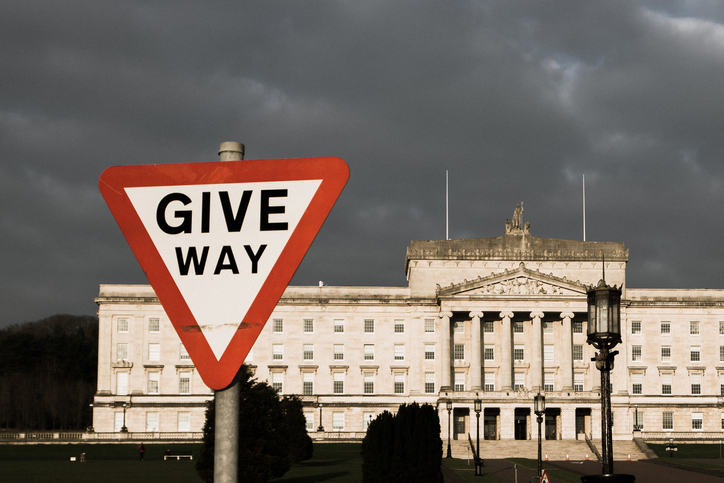‘‘The solution will be found not on the basis of victory for either side, but on the basis of agreement and a partnership between both.” These are not my words or those of any unionist voice. They are attributed to the late John Hume, regarded by some as the architect of Northern Ireland’s peace process.
In 2022, it seems nationalism in Northern Ireland has had a change of heart. The principle of consensus promoted by its famous founder has been set aside. Despite not a single Unionist elected representative backing the Protocol, nationalism demands its rigorous implementation.
Progress in our Province has only been possible when arrangements command the confidence of both traditions. Erecting a border in the Irish Sea without the support of Unionism is a reckless departure from that core principle.
Trade checks between Great Britain and Northern Ireland are costing £2.5m every day. That’s £100,000 every hour. Businesses no longer have unfettered access to, and from, their primary market. A market that accounts for the vast majority of trade arriving into Northern Ireland. Indeed, we buy over four times as much from GB than the Irish Republic.


Consumers no longer enjoy the same rights and freedoms as their counterparts in England, Scotland and Wales. Many products available there are not available in Northern Ireland. Those that do make it here cost more. There is also still the risk of vital medicines being discontinued. The EU is even demanding checks on people making journeys inside the Common Travel Area.
All of this represents an unmistakable change in the constitutional position of Northern Ireland. Those who suggest such a change is only possible via a referendum miss the bigger picture. If the benefits of Northern Ireland’s membership of the UK are systematically eroded – and our economy re-orientated towards Dublin – without our consent, a border poll becomes less of a question and more of a formality.
The Protocol should not have been agreed or imposed without the prior and express consent of a majority of people in Northern Ireland. That much is clear. The Government bears ultimate responsibility for this. The Secretary of State has expressed faux outrage about the lack of a functioning Executive to make decisions. This is despite the fact that he chomped at the bit to override such decisions by locally-elected ministers on key issues like abortion, Irish language and voting protections. The irony of this will not be lost on Unionists, among whom there is now a crisis of confidence about the value of devolution.
It is time to restore fairness and build a better future in Northern Ireland. A future where Unionism’s interests are respected, and one side is not elevated over another. We have a vision to transform our health service, tackle waiting lists, create more jobs, tackle the cost of living and provide a fair start for every child. However, that vision cannot be realised while the impact of the Irish Sea border still hangs over Northern Ireland like the Sword of Damocles. We cannot build a better future whilst at the same time engaging in daily damage limitation against costly and disproportionate Protocol barriers.
Short-term answers to a small number of issues will not address the dysfunctionality and democratic deficit at the heart of the Protocol. We cannot simply move the cliff edge. Businesses deserve certainty. The prime minister talks about the need for a fix. What is needed is a new way forward.
What Unionism demands is a fair deal. One which unlocks the door to a successful and stable future for every community whilst retaining the benefits of the Union – including the NHS – for everyone. It is time to restore Northern Ireland’s place in the United Kingdom internal market. But most of all we need to see the principle of consensus, on which the future of devolution hinges, restored to the heart of that new way forward.









